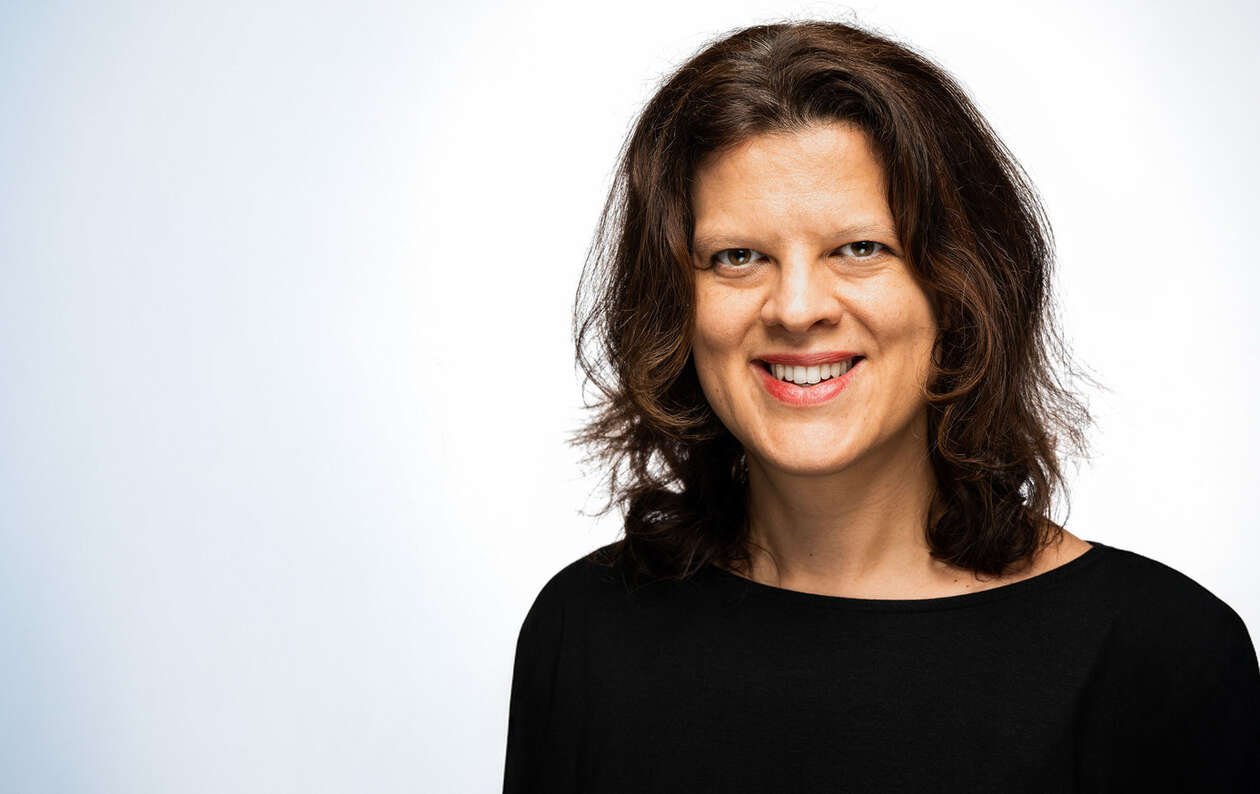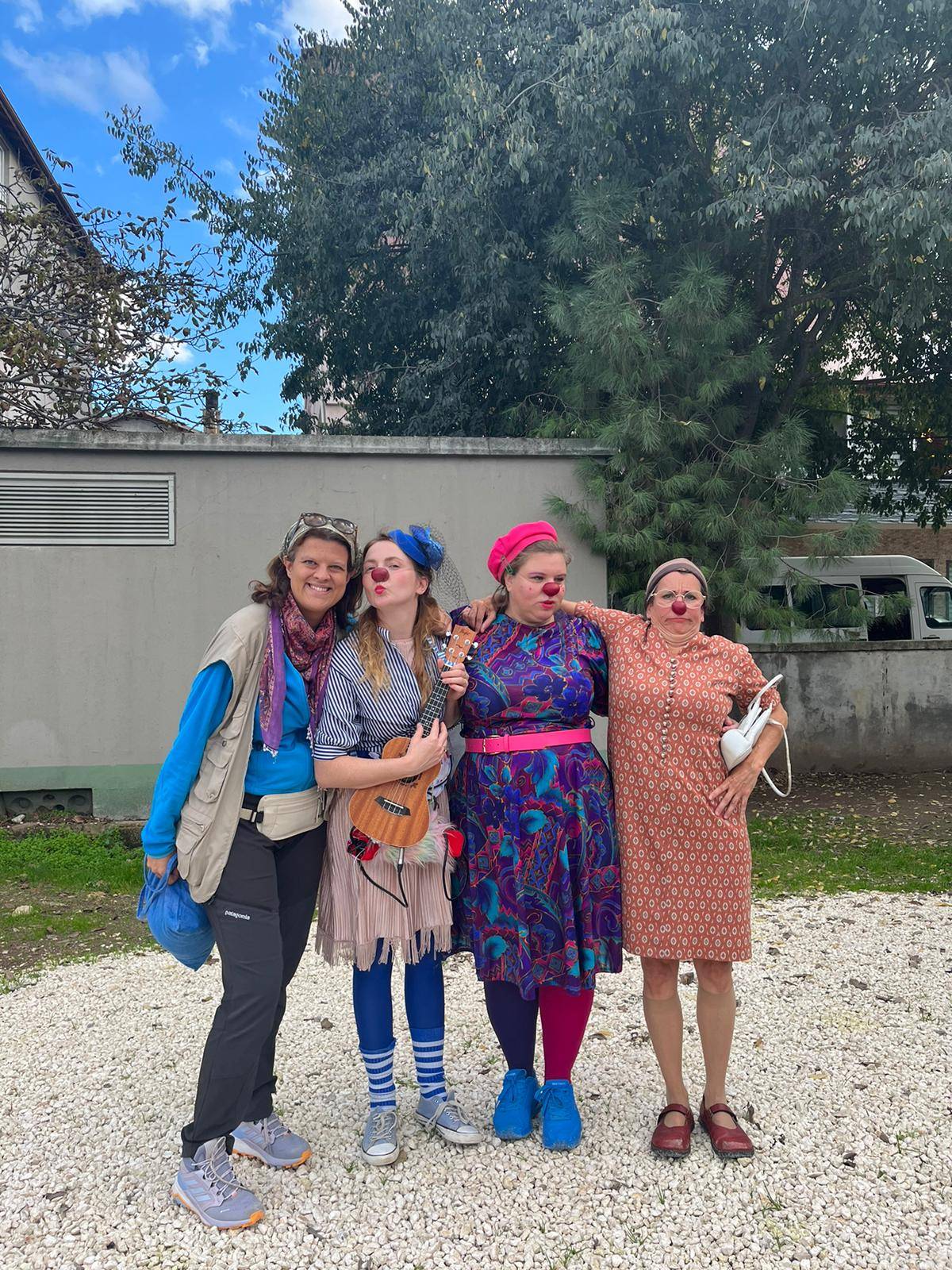International Women’s Day - an interview with our CEO Natalie Porias
Today, on International Women's Day, we sat down with Natalie Porias, CEO of RED NOSES International, as she shares her journey from a fundraiser to a leader in the humanitarian field, revealing her inspiring story and the mission of RED NOSES International.
Can you share your journey to becoming the CEO of RED NOSES International? What inspired you to pursue a leadership role in the humanitarian field?
My journey to becoming CEO of RED NOSES International began with a deep passion for combining creativity and humanitarian work. I started as a fundraiser, organizing events like the RED NOSES RUN and securing institutional donors, which sparked my interest in mission-driven initiatives.
As I took on roles like Head of International Development and Relations, I became increasingly inspired by our global impact, building up new RED NOSES country offices and partnerships with other NGOs. My desire to have a larger impact on both our work and the people we serve motivated me to pursue leadership.
Now, as CEO, I’m driven by the opportunity to lead an organization that creates more joy in the world through the art of clowning, especially in crisis-affected areas, and to help shape the future of our organisation showing the power of art on health and mental health.
What role do you think empathy and emotional intelligence play in effective leadership, especially in humanitarian settings?
Empathy and emotional intelligence are crucial to effective leadership, especially in humanitarian settings. In our work, understanding and connecting with the emotional needs of both our teams and the people we serve is essential for building trust and creating meaningful impact.
Empathy allows leaders to deeply understand the challenges others face, whether it's our staff navigating difficult environments or the individuals we’re helping in crisis situations. It ensures we lead with compassion, make thoughtful decisions, and offer support where it’s needed most.
Emotional intelligence, which includes self-awareness, self-regulation, and the ability to manage relationships, enables leaders to stay grounded and make well-informed choices under pressure. In humanitarian contexts, where emotional and psychological stress can be high, these qualities help leaders remain calm, responsive, and adaptable, fostering a positive and resilient organizational culture.
Imagine if you could give your 18-year-old self one piece of advice related to leadership, equality, and pursuing a career with a social impact—what would that advice be?
Trust in yourself and recognize that you can't control how others perceive you. Stay present, embrace your humanity, and remember that true leadership doesn't come from being tough—it comes from being authentic, self-aware, and connected to those you lead
What do you hope to see change for women in leadership over the next decade, within social impact sectors?
It's crucial that women not only have equal opportunities but also the support and recognition they deserve in these spaces. I envision a future where women's voices are integral to shaping decisions and strategies, particularly in organizations addressing the most pressing global challenges.
Additionally, I hope to see more emphasis on inclusive leadership styles, where empathy, collaboration, and emotional intelligence are valued as key traits for effective leadership—qualities often attributed to women. Ultimately, I believe that a more balanced and diverse leadership landscape will lead to more innovative, sustainable, and equitable solutions for the communities we serve.
How do you stay resilient and maintain your passion for humanitarian work in the face of adversity?
Resilience in humanitarian work, for me, comes from staying connected to my humanity and embracing life’s full spectrum—joy and sorrow, hope and despair. I don’t negate the difficult or uncomfortable parts of life; instead, I choose to acknowledge them while actively seeking out the joy, light, and hope that still exist alongside them.
I’ve learned to dance between these polarities, recognizing that they’re part of the natural flow of life. Staying curious about my own strengths, vulnerabilities, and connections with others helps me navigate challenges. Even small, intentional actions can create a sense of empowerment, reminding me that I’m not alone. We’re all doing our best on this shared journey, and that collective effort keeps my passion alive and my hope intact.


